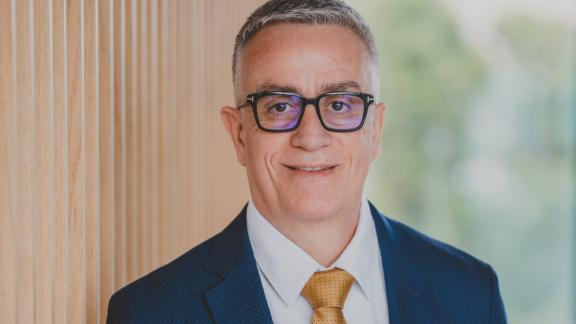May 31, 2020
Dear UCSF Community,
In Minneapolis on May 25, George Floyd died under circumstances that have become too familiar and frequent, but as difficult to accept as ever. The manner of his death has released torrents of anger and sorrow across the country. The grief we feel is compounded by the deaths of Breonna Taylor in March and Ahmaud Arbery in February. Like Mr. Floyd, both were killed in situations that are hard to comprehend, one in her home and the other while jogging in his neighborhood.
What these tragedies have in common is that all three victims are black. These incidents expose the double standard of racism that provides privileges to some, and denies them to others, based on the color of their skin. It is a double standard all people of color face, but that black people experience most painfully. Those of us who are not black cannot fully understand what the black experience is in this country. We are privileged to do things without concern that black people simply cannot. This inequitable system of privilege is so pervasive and foundational in our society that it is accurately described as structural racism.
As I watched the events in Minneapolis unfold this past week, I struggled for words to serve my heartbreak. How many times must we mourn another black person who died doing everyday things that many of us take for granted. Once again, we must unite in a clear voice to condemn racism and discrimination of all kinds.
For those of us who benefit from privilege, I encourage us to go beyond denouncing acts of racism and hate. We must examine our own bias and have honest, courageous conversations with one another. We can grow to recognize racism and bias the way people of color live with it, every day. In so doing, we will find the strength to take on the struggle of those who don’t share in the privileges conferred to us by a system that we must change.
Learning about George Floyd’s death was especially difficult this week, as the nation passed the grim milestone of 100,000 COVID-19 deaths. As has become clear, this public health crisis has had a disproportionately higher impact on black and Latinx communities. The novel coronavirus may be agnostic, but the health consequences of structural racism are not.
At UCSF, we must continue the hard work of dismantling the structural barriers in education, research, employment, and health care. For our community, these events serve as a call to action—to advance our work in eliminating health disparities and to continually reinforce an inclusive culture in which every one of us feels safe and empowered. Our mission to serve the health needs of all, without bias or discrimination, has never felt more important.
To support our community’s efforts in broadening self-awareness about racism, please review this list of resources assembled by Dr. Renee Navarro, vice chancellor of Diversity and Outreach. I am grateful for her thoughtful and compassionate leadership.
- Unconscious Bias Education and Training
- Resources for Engaging in Anti-Racism Work
- We are Living in a Racist Pandemic
- Your Black Colleagues May Look Like They’re Okay – Chances Are They’re Not
- Affirming Black Lives Without Inducing Trauma
- Anti-Racism Resources
At a time when we rely on social distancing to save lives, we need social solidarity as well. For those who are hurting, we embrace you and mourn with you. We offer our unqualified love and support, united as one UCSF committed to healing and learning from one another.
Sincerely,
Sam Hawgood, MBBS
Chancellor
Arthur and Toni Rembe Rock Distinguished Professor





